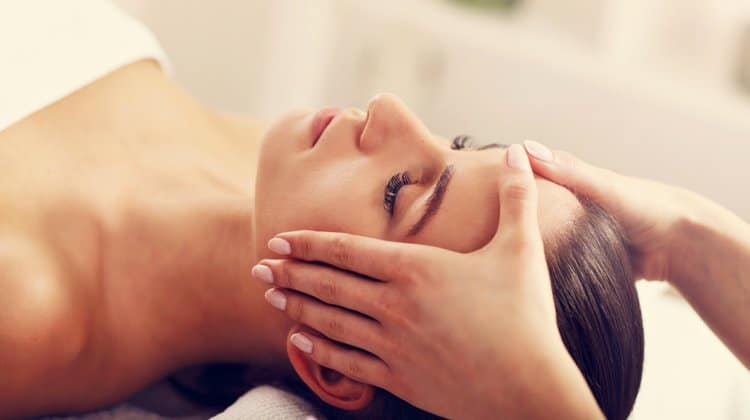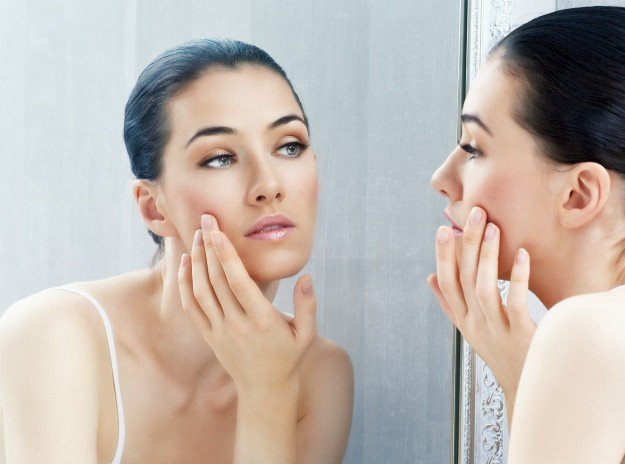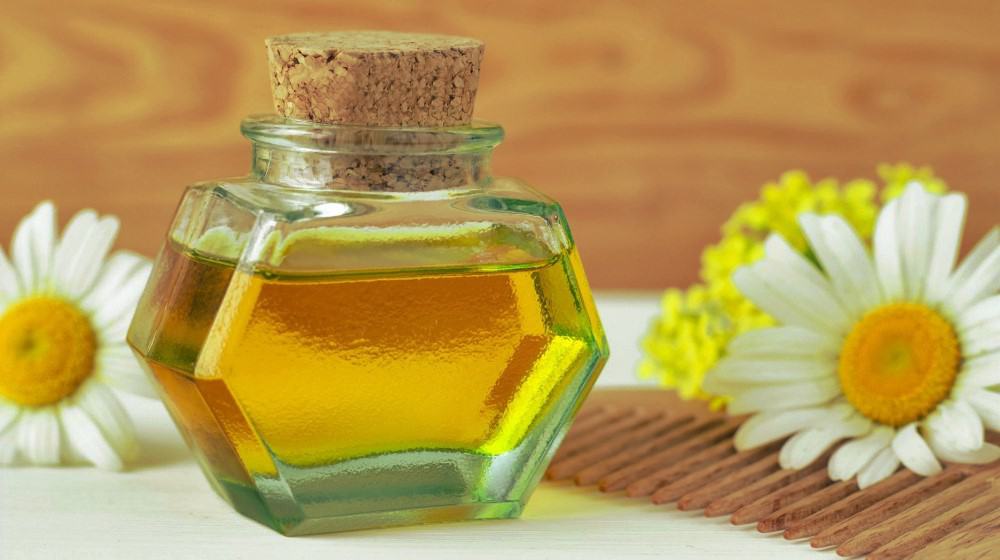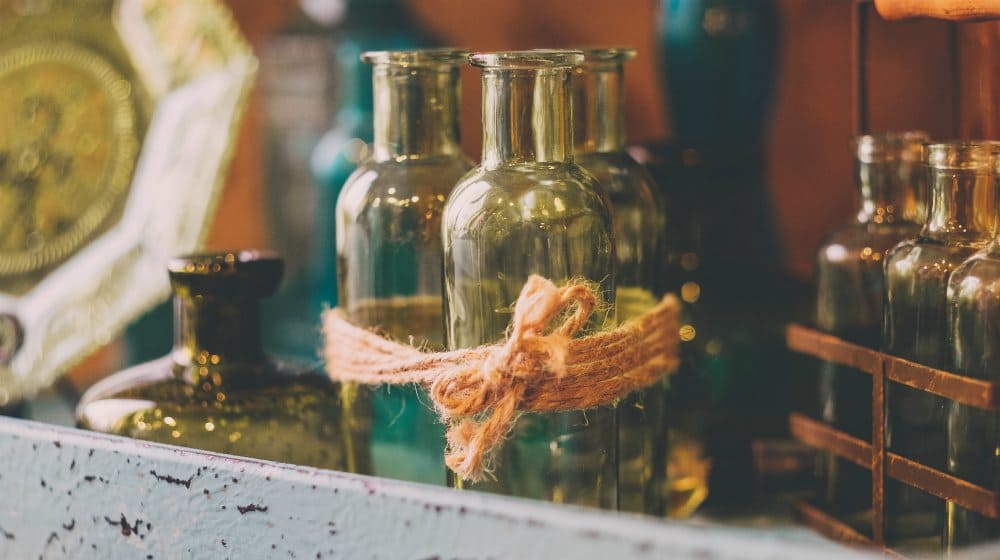Table of Contents
Who can resist the alluring aroma of lavender? The scent alone is enough to make you feel calmed and relaxed. But we’re not just here to talk about its intoxicating fragrance; we’re here to dive deeper, to explore the multiple health effects of this purple-tinged plant in its most potent form – as an essential oil. Let’s unravel the magic of lavender essential oils together!
1 The Top Benefits of Lavender Essential Oils
1. Promotes Relaxation and Reduces Stress
Lavender essential oils are your new best friend when it comes to dealing with stress. This delightful, purple-tinted oil is packed full of linalool and linalyl acetate, two naturally occurring compounds with potent anti-stress properties.
Lavender essential oil has been used for centuries for its calming and relaxing properties.
When diffused in the air or inhaled, these compounds work their magic by calming your nervous system, slowing down your heart rate, and quieting your mind. Yes, it’s like a gentle, fragrant lullaby for your brain!
But the wonders of lavender essential oils do not stop there. A relaxing massage, a soothing bath, or even a few drops on your pillow can take your stress levels down several notches. This is possible due to the oil’s unparalleled ability to induce alpha waves in the brain, those responsible for relaxation. So, whether you’re winding down from a tough day at work or trying to manage chronic stress, remember, a dab, sniff, or soak in lavender essential oils might be just what your body and mind need.
2. Aids in Sleep and Insomnia
We all know the feeling, don’t we? Tossing and turning, trying to catch elusive Z’s, the nightlife of an insomniac can be frustrating. Enter: Lavender Essential Oil. This fragrant friend may just be the ticket to slumberland you’ve been seeking.
Inhaling lavender essential oil has been shown to improve sleep quality and promote better sleep.
Research suggests that the lovely lavender plant isn’t just a treat for the eyes. Its essential oil, when used in aromatherapy, may increase slow-wave sleep, instrumental in slowing heartbeat and relaxing muscles. So, those wrestling matches with your pillow can finally come to an end.
Think it’s too good to be true? Not only does lavender essential oil infuse your bedroom with an enchanting aroma, but it also appears to interact with the neurotransmitter GABA to help quieten the brain and nervous system activity. This may function to reduce restlessness, anxiety, and agitation, thereby encouraging a more peaceful night’s snooze.
So head over into the ‘purple-haze’ territory and give Lavender Essential Oil a shot for your insomnia. It’s like threading a sweet-scented lullaby wafting gently through your room, paving the way to those all-important dreams of counting sheep.

3. Soothes Headaches and Migraines
Have you ever been plagued by a relentless headache or a throbbing migraine? Imagine having a solution at your fingertips, ready to swoop in and soothe your distress. Enter lavender essential oil – your home remedy hero.
It has been reported that lavender essential oil may aid in reducing headaches and migraines.
The science behind lavender’s analgesic effects is substantial, specifically its ability to quell the throbbing discomfort associated with headaches and migraines. Lavender essential oil contains compounds that work similarly to many headache medications, reducing blood vessel inflammation and thus alleviating the pressure that contributes to the pain.
But what strikes the game-changing move is how you put it into action. A few drops of lavender oil on your temples or forehead, as well as inhaling its soothing aroma, may do the trick. The active constituents—linalool and linalyl acetate—have cooling properties that relax tense nerves and muscles that often trigger headaches. It’s the olfactory equivalent of a gentle, calming voice whispering, “Relax, I’ve got this,” to your overexcited nerves. So just breathe deep, and let lavender do its magic.

4. Alleviates Anxiety and Depression
Have you ever found yourself battling with stress-inducing thoughts or the weighty chains of depression? Pause for a moment and picture this: The serene scent of lavender entering your senses, allowing a wave of calm to wash over you. This isn’t just a fanciful image. In reality, lavender essential oil has been used for centuries to combat anxiety and depression.
Rich in linalool and linalyl acetate, two powerful compounds, inhalation of the oil can reduce both psychological and physiological stress responses. A mere whiff of this essential oil can stimulate brain activity, leading to a more positive mood and better mental focus.
Lavender’s magic doesn’t stop at inhalation. Topical application, although less known, is equally as effective. Applying the oil onto the skin prompts absorption into the circulation system, effectuating a calming, anti-depressant effect.
Lavender essential oil induces relaxation by impacting the limbic system, the part of the brain that controls emotions. In essence, it’s akin to nature’s very own chill pill. So whether you’re feeling anxious about an impending presentation or just having one of those down-in-the-dumps kind of days, lavender essential oil can be your botanical ally in uplifting your spirits.
5. Supports Skin Health and Healing
Who wouldn’t love having healthy, glowing, and blemish-free skin, right? With lavender essential oil within your arm’s reach, that’s not as much of a dream anymore.
Lavender essential oil can be used topically to help soothe skin irritations and promote healing.
This magic potion brims with anti-inflammatory and antiseptic properties. These fabulous properties make it highly effective in cleaning minor cuts, soothing burns, and mending skin disorders like acne, eczema, and psoriasis. It also aids in promoting skin cell turnover, which accelerates the healing process. Isn’t it awe-inspiring to find such robust skin support from one, little unassuming bottle?
Lavender essential oil also has antioxidants that protect your skin from those pesky free radicals—those villains in your skincare story that speed up the aging process. Everyone’s skin comes under attack from toxins and pollutants daily, and these can make you age faster than you’d like. Fortunately, lavender essential oil is there to save the day, fighting off these attackers and helping to maintain your skin’s firmness, strength, and youthful resilience.

6. Relieves Muscle Pain and Inflammation
Have you ever come home after a strenuous workout and felt the discomfort of muscle pain creeping in? Or maybe you’ve had one too many tedious computer work days, and that familiar discomfort is creeping up your shoulders. Don’t reach for that over-the-counter pain killer just yet because your new best friend might be lavender essential oil.
Research has shown that lavender essential oil may have anti-inflammatory properties.
Believe it or not, this oil has been used for centuries to soothe muscle pain and inflammation. The anti-inflammatory properties found in lavender help to reduce swelling and alleviate the pain associated with such conditions. It works by penetrating the skin and relaxing tight, sore muscles. A massage with lavender oil after an intense workout or a stressful day can spell relief for your tired, sore body.
Now, you might be wondering, ‘how exactly do I use this magical oil?’ It’s quite simple, really. Lavender oil can be mixed with a carrier oil like olive or coconut oil and then applied directly to the inflamed area. This allows the oil to seep into the skin, delivering its pain-relieving properties.
Alternatively, adding a few drops of lavender essential oil into your bath provides a relaxing and therapeutic soak that does wonders for muscular discomfort. Plus, the sweet and floral aroma of lavender aids in relaxation, making it a two-for-one solution: physical relief and mental relaxation!

7. Boosts Immune System Function
This fragrant elixir not only provides an instant lift to your mood, but also turns out to be an undercover agent for your body’s defenses. Ranging from oxidative stress to aging, lavender oil serves as a vital fighter against these sneaky culprits that attempt to deteriorate your health. Bursting with antioxidants, it combats harmful free radicals that try to intrude upon your body’s peace.
Lavender essential oil has been found to have antimicrobial properties, which can help fight against certain bacteria and fungi. Thanks to its antimicrobial properties, lavender oil is also ever-ready to ward off a spectrum of harmful germs. So, when you take a whiff of lavender’s rich scent, remember it’s not just a treat for your senses, but also a shield in your battle against flu.
Still, the marvels of lavender essential oil don’t end there. Its potent benefits also seep into supporting your immune system. Studies reveal, it backs the production of white blood cells, which are nothing short of superheroes when it comes to your health. These brave cells stand like a fortress, protecting your body from harmful intruders such as bacteria or viruses.
So, when you’re nursing a cold, flu, or simply aiming to boost your health, keep lavender essential oil within reach. Who knows, those few invigorating drops might be the secret stint your body needs to maintain its healthy rhythm!
8. Enhances Hair Growth and Scalp Health
Have you ever examined those fancy hair products off the cosmetic shelves? You may notice lavender oil listed as a prime ingredient more often than not; it’s not just there for its fabulous scent. The secret is out!
Research indicates that lavender oil may have a positive impact on hair growth and reduce hair loss.
Lavender oil is a hair care champion; its powerful properties can boost your mane’s beauty and health. From reviving dull strands to fighting those stubborn scalp issues, lavender oil proves to be a game-changer in a beauty routine. Regular massages with lavender oil can also stimulate blood circulation, which in the long run, contributes significantly to hair growth.
Pesky dandruff making you wear that black shirt with trepidation? Lavender oil delivers as a fantastic natural remedy to keep your scalp healthy and dandruff at bay. Its antimicrobial properties provide an active defense against bacteria and fungi, often the prime culprits behind scalp irritations and dandruff. Its soothing qualities can calm an inflamed scalp and give you relief from itching. In essence, lavender oil is your trusted ally when it comes to enhancing hair growth and maintaining robust scalp health.

Conclusion: Lavender Essential Oil as a Natural Health and Wellness Solution
It’s clear to see just how much of a versatile powerhouse lavender essential oil truly is. From fostering a sense of tranquility and easing the burden of stress, to bringing forth fast relief to your pounding headaches and nagging migraines. It’s there to calm the storm of anxiety and depression and support the vitality of your skin. Facing muscle pain or inflammation? Lavender oil’s got you covered. It even steps up to bolster your immune system and bring health and vigor back to your hair. A true unsung hero in the world of natural health and wellness, wouldn’t you agree?
Do you want to know how lavender oil is extracted? Watch this?Discovery and Science Channel’s How It’s Made special, posted by Panos Egglezos:
Considering all the benefits of lavender, it’s one essential oil you should have on your shelf. Aside from its versatility, the scent itself is distinct and clean. Why not make lavender your signature scent?
Up Next: Aromatherapy Guide: Managing Your Emotions
We may earn a commission for purchases made using our links. Please see our disclosure to learn more. We appreciate your support SO very much.










